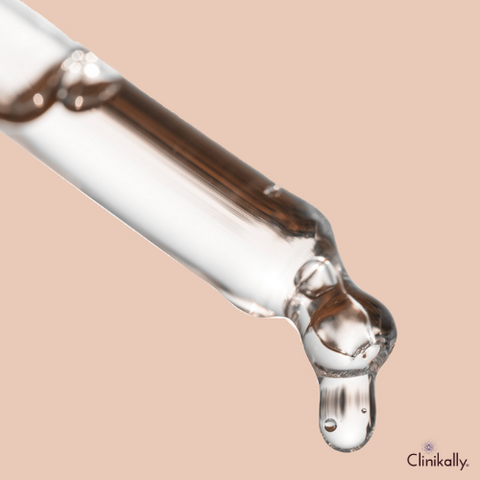Non-GMO food products have gained popularity among consumers due to the potentially dangerous chemicals and pesticides sprayed on GMO crops. In addition to food, GMOs can also be found in skincare and cosmetics. It is crucial to take into account both the possible health risks of consuming genetically modified (GM) foods and the way GMO products are labeled. GMOs are organisms whose genetic material has been altered in a way that is not naturally occurring. This is usually done through genetic engineering or other biotechnology techniques.
When discussing skincare products, non-GMO labeling frequently refers to natural ingredients like plant extracts, oils, and other ingredients. Custom Customers who choose non-GMO skin care products can stay away from using products that contain genetically modified ingredients. People choose to stay away from GMOs for ethical or personal reasons, despite the fact that there is an ongoing debate about the safety and potential risks of these products in food and other products. Consumers can use non-GMO labeling to make educated decisions about the skincare products they use.
Understanding the Importance of Non-GMO Skin Care for Your Health

There are numerous factors related to health and environmental concerns that make the use of non-GMO skin care products important. First, the long-term effects of genetically modified organisms (GMOs) on human health have not been thoroughly investigated. While the safety of GMOs in food and other products is still being debated, some studies have found that they may have harmful effects on human health, including allergic reactions, toxicity, and other risks. Second, GMOs may have an effect on the environment. Genetically modified crops can be grown and produced, but this can lead to environmental degradation like soil erosion, water pollution, and biodiversity loss. It is possible to reduce exposure to potential health risks and support environmentally friendly, sustainable practices by choosing skin care products free of genetically modified organisms (GMOs). Non-GMO skin care items may also be kinder and less likely to cause allergic reactions in people with sensitive skin, making them a good choice.
It is important to note that while non-GMO labeling provides a way for consumers to make informed choices about the products they use, it is not a guarantee of safety or efficacy. When choosing skin care products, consumers should also take other aspects into account, such as the quality and sourcing of the ingredients, product formulations, and user reviews.
What Does Non-GMO Mean in Skin Care Products?
Non-GMO plants have not been genetically modified. This means they still have a higher concentration of nutrients and more potent natural properties. If an ingredient is labeled non-GMO, it means that it is derived from plants that have not been genetically modified, as explained above. For this reason, high-quality natural beauty products with non-GMO ingredients are preferred over those with GMO ingredients. Whenever possible, choose non-GMO ingredients.
Non-GMO in skin care products denotes that none of the ingredients used to make the product came from animals, plants, or other sources that have undergone genetic modification. Some common skincare ingredients that may be genetically modified include soy, corn, and canola oil. Customers can avoid using products that contain genetically modified ingredients by selecting non-GMO skin care products.
Consumers can use non-GMO labeling to make educated decisions about the skincare products they use. While the safety of genetically modified ingredients in skin care products is still up for debate, choosing non-GMO skin care products can help minimize exposure to potential health risks and promote environmentally friendly practices.
Benefits of Using Natural and Organic Ingredients in Skin Care

Using natural and organic ingredients in skin care products can offer a variety of benefits for both the skin and overall health. Here are some potential benefits of using natural and organic ingredients in skin care:
-
Fewer harsh chemicals: Natural and organic skin care products typically contain fewer synthetic and artificial chemicals than conventional skin care products. This can be beneficial for people with sensitive skin or those who are concerned about the potential risks associated with synthetic ingredients.
-
Higher nutrient content: Natural and organic skincare ingredients may contain higher levels of vitamins, minerals, and other nutrients than synthetic ingredients. These nutrients can help to nourish and support healthy skin function.
-
Sustainable and environmentally friendly: Organic skin care ingredients are often produced using environmentally sustainable practices, such as organic farming, which can help to protect the environment and support long-term sustainability.
-
No synthetic fragrances: Essential oils and other natural ingredients are frequently used in place of synthetic fragrances in natural and organic skincare products. This can be beneficial for people with allergies or sensitivities to synthetic fragrances.
-
Better absorption: Natural and organic skincare ingredients are often more easily absorbed by the skin than synthetic ingredients. This can help to improve the efficacy of the product and support optimal skin health.
The use of natural and organic ingredients in skin care products can generally provide a number of advantages for the skin and general health. When selecting skin care products, consumers should look for products that are labeled as "natural" or "organic" and read ingredient labels carefully to ensure that they are getting high-quality, safe, and effective products.
Why Chemical-Free Skin Care is Important for Sensitive Skin
The risk of irritation and negative reactions can be reduced by using chemical-free skin care, which is crucial for those with sensitive skin. Skin barrier weakness in sensitive skin makes it more vulnerable to irritants, inflammatory conditions, and allergic reactions. The skin barrier can be further weakened, and these problems can be made worse by harsh chemicals that are frequently found in many conventional skin care products, such as sulfates, parabens, and synthetic fragrances. On the other hand, chemical-free skin care products are created with gentle, non-irritating natural and organic ingredients. These products frequently lack synthetic fragrances, dyes, and preservatives that can irritate the skin and cause allergic reactions. The harsh surfactants sodium lauryl sulfate (SLS), which can dry out and irritate skin by removing its natural oils, are frequently absent from them.
The risk of adverse reactions can be reduced by using chemical-free skin care products to protect and soothe sensitive skin. Natural and organic ingredients can lessen the likelihood of irritation and inflammation while supporting healthy skin function and repair. When choosing skin care products for sensitive skin, it's crucial to look for items that are marketed as natural or organic and to carefully read ingredient labels to make sure they are free from harsh chemicals and potential irritants.
Dangers of Parabens and Sulfates in Skin Care Products
Traditional skin care products frequently contain the two chemicals parabens and sulfates, both of which have been linked to a number of potential health risks. In order to stop the growth of bacteria and mold, parabens are a type of preservative frequently found in skin care products. Prolonged exposure to high levels of estrogen has been linked to an increased risk of breast cancer, but studies have shown that parabens can mimic the hormone estrogen in the body. Many people choose to avoid paraben-containing products in order to minimize their exposure, even though the connection between parabens and cancer is still being researched.
Sulfates, such as sodium lauryl sulfate (SLS), are frequently found in skincare products because they help create a lather and remove oil and dirt from the skin. The skin's natural oils can be stripped away by sulfates, which can be abrasive and drying. The resultant damage, dryness, or irritation could lead to damage to the skin barrier. Some people are concerned that sulfates, which can enter the body through the skin, may eventually have negative effects on the body's systems.
Many people choose to use skin care products without parabens and sulfates to avoid these possible risks. The ingredients in natural and organic products are frequently mild, non-toxic, and less likely to cause skin irritation or adverse side effects. When choosing skin care products, it's critical to carefully read ingredient labels and pick items that are free of harsh chemicals and potential irritants.
How Non-GMO Skin Care Helps Nourish Your Skin from Within
Non-GMO skin care products can be a great way to nourish your skin from the inside out. Many natural and organic ingredients found in non-GMO skin care products are high in vitamins, minerals, and antioxidants, which can benefit your skin in a variety of ways. Ingredients such as aloe vera, coconut oil, and jojoba oil, for example, are common in non-GMO skin care products and are known for their moisturising and soothing properties. These ingredients can help hydrate and calm the skin, as well as reduce redness, dryness, and irritation.
Other natural ingredients rich in antioxidants, such as green tea extract, vitamin C, and rosehip oil, can help protect the skin from environmental stressors such as UV radiation and pollution. Antioxidants work by neutralizing free radicals, which are unstable molecules that can cause cell damage and premature aging. Synthetic fragrances and other potentially irritating ingredients that might lead to skin sensitivity and reactions are frequently absent from non-GMO skin care products. You can help support the overall health and well-being of your skin by using products that are free of potentially harmful chemicals and ingredients.
All things considered, using non-GMO skin care products can be a great way to nourish your skin from the inside out and give it the nutrients it needs to stay hydrated, healthy, and radiant.
Exploring the Advantages of Plant-Based Skin Care Products
Plant-based skin care products offer a range of advantages over traditional skin care products that are formulated with synthetic ingredients. Here are some of the key benefits of using plant-based skin care products:
-
Natural Ingredients: Plant-based skin care products are formulated with natural ingredients that are derived from plants, such as herbs, flowers, fruits, and vegetables. These ingredients are rich in essential nutrients, vitamins, and antioxidants that can help nourish and protect the skin.
-
Non-Toxic: Plant-based skin care products are generally free from harmful chemicals, synthetic fragrances, and artificial preservatives that can be found in traditional skin care products. This means that plant-based products are gentler on the skin and less likely to cause irritation or allergic reactions.
-
Eco-Friendly: Plant-based skin care products are often made with sustainably sourced ingredients and packaged in eco-friendly materials. This makes them a more environmentally friendly choice than traditional skin care products that may contain harsh chemicals and use non-renewable resources.
-
Anti-Aging: Many plant-based ingredients have anti-aging properties that can help improve the texture and appearance of the skin. For example, botanical oils like jojoba oil and rosehip oil are rich in antioxidants and essential fatty acids that can help reduce the appearance of fine lines and wrinkles.
-
Effective: Plant-based skin care products can be just as effective as traditional skin care products when it comes to improving the health and appearance of the skin. Many plant-based ingredients have been used for centuries in traditional medicine and have been shown to have powerful healing and rejuvenating properties.
Plant-based skincare products offer a range of benefits for the skin and can be a great choice for those looking for a more natural and eco-friendly approach to skin care.
The Importance of Ethical and Environmentally Friendly Skin Care
Ethical and environmentally friendly skin care is important for several reasons:
-
Protects the environment: Traditional skin care products can contain harmful chemicals and pollutants that can negatively impact the environment. Ethical and environmentally friendly skincare products are often made with natural, sustainable, and biodegradable ingredients that minimize their impact on the environment.
-
Promotes animal welfare: Some traditional skin care products are tested on animals, which can be cruel and inhumane. Ethical and environmentally friendly skincare products are often cruelty-free and not tested on animals, which is better for animal welfare.
-
Supports fair trade: Ethical and environmentally friendly skin care companies often source their ingredients from fair trade suppliers. This ensures that farmers and workers are paid fair wages for their labor and that they work in safe and healthy conditions.
-
Benefits your health: Ethical and environmentally friendly skincare products are often made with natural and organic ingredients that are free from harmful chemicals and toxins. This can be better for your skin and overall health.
-
Promotes sustainable practices: Ethical and environmentally friendly skin care companies often prioritize sustainable practices in their operations, such as using renewable energy sources, reducing waste, and recycling. This helps to promote a more sustainable and responsible approach to business.
Ethical and environmentally friendly skin care is important for promoting a more sustainable, responsible, and compassionate approach to skincare that benefits both people and the planet.
Achieving Healthy and Hydrated Skin with Non-GMO Skin Care

Using non-GMO skin care products can help achieve healthy and hydrated skin in several ways:
-
Nourishing ingredients: Non-GMO skin care products often use natural and organic ingredients that are rich in vitamins, minerals, and antioxidants. These ingredients can help nourish and hydrate the skin, promoting a healthy and glowing complexion.
-
Chemical-free formulas: Non-GMO skin care products are often free from harmful chemicals and toxins that can dry out the skin and cause irritation. Instead, they use gentle, plant-based ingredients that are less likely to cause allergic reactions or other adverse effects.
-
Hydration boost: Many non-GMO skin care products are designed to provide a boost of hydration to the skin. They may contain ingredients like hyaluronic acid, aloe vera, or glycerin, which can help lock in moisture and keep the skin looking plump and supple.
-
Anti-aging benefits: Some non-GMO skin care products are formulated with anti-aging ingredients like antioxidants and peptides, which can help reduce the appearance of fine lines and wrinkles. These ingredients can also help improve skin elasticity and firmness.
-
Sun protection: Non-GMO skin care products may contain natural sunscreens like zinc oxide or titanium dioxide, which can help protect the skin from harmful UV rays. This can prevent sun damage, which can cause dryness, wrinkles, and other signs of aging.
Using non-GMO skin care products can help promote healthy, hydrated, and youthful-looking skin. By choosing products that are free from harmful chemicals and toxins and packed with nourishing ingredients, you can give your skin the care it needs to look and feel its best.
Boosting Skin Elasticity and Repair with Vitamin-Rich Skin Care
Vitamins are crucial for promoting skin elasticity, repairing damaged skin cells, and protecting against environmental stressors, which helps to maintain healthy skin. Including vitamin-rich skin care products in your routine can help boost the overall health and appearance of your skin.
Here are some key vitamins to look for in your skincare products:
-
Vitamin A: Also known as retinol, vitamin A helps to boost collagen production, reduce fine lines and wrinkles, and improve skin texture.
-
Vitamin C: This powerful antioxidant helps to protect the skin against environmental stressors such as UV radiation, and aids in collagen production to promote skin elasticity and firmness.
-
Vitamin E: Another potent antioxidant, vitamin E helps to protect the skin from free radical damage, improve skin texture, and promote the healing of damaged skin.
-
Vitamin B3: Also known as niacinamide, vitamin B3 helps to improve skin hydration, reduce inflammation, and boost collagen production for smoother, more youthful-looking skin.
-
Vitamin K: This vitamin helps to reduce the appearance of dark circles and under-eye bags by improving blood circulation and promoting skin healing.
Incorporating vitamin-rich skin care products into your routine can help nourish and protect your skin from the inside out. It’s important to choose products that are formulated with high-quality, non-GMO ingredients and are free of harmful chemicals and additives. Consulting with a dermatologist can also help you identify the best products for your specific skin care needs.
The Future of Skincare: Clean Beauty and Transparency in Products

Clean beauty and transparency are the future of skincare. Consumers are demanding greater brand transparency as they become more knowledgeable about the ingredients in skincare products. They want to be completely aware of the ingredients in the skin care products they use, as well as the effects those ingredients may have on their health and the environment. Transparency emphasizes clear labeling and transparent brand communication about their ingredients and manufacturing processes, while clean beauty concentrates on products that use natural and organic ingredients and are free of potentially harmful chemicals.
As a result, many brands are moving towards clean beauty and transparency in their products. This entails utilizing non-GMO ingredients, staying away from dangerous substances like parabens and sulfates, and incorporating ethical and sustainable practices into their manufacturing processes. More businesses are also making efforts to lessen their negative effects on the environment by using recyclable packaging and cutting back on waste. The future of skincare is likely to be one where consumers have more knowledge and control over the products they use, and where brands prioritize transparency and sustainability in their practices.
































